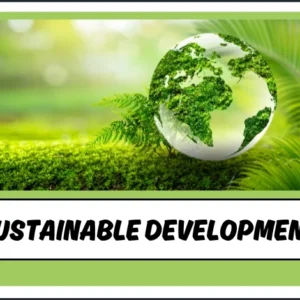The International Fund for Agricultural Development (IFAD) has surpassed US$1 billion in sustainable bond issuances since its first issuance in June 2022. This milestone was reached with the twelfth bond issued in September 2025, marking a significant expansion of IFAD’s ability to finance rural development projects globally.
By the end of 2024, the first US$646 million raised through international capital markets was directed to support 12 million rural people. Now, crossing the billion-dollar threshold will enable IFAD to extend its impact, helping communities to boost food production, diversify crops, access modern technologies, financial services, and markets, adopt climate-resilient practices, and develop small agribusinesses that generate jobs.
Diane Menville, IFAD’s Associate Vice-President and Chief Financial Officer, highlighted that sustainable bonds have become crucial tools for mobilizing resources to transform agriculture and food systems. She emphasized that investors are making tangible contributions to millions of lives worldwide through these investments.
Since 2022, IFAD has issued twelve sustainable bonds via private placements in multiple currencies, including US dollars, euros, Swedish krona, and Australian dollars. These placements have attracted pension funds, asset managers, and central banks from Europe, Africa, and Asia. The funds are channelled into over 200 active projects across 90 countries, directly supporting 16 of the 17 Sustainable Development Goals (SDGs).
According to IFAD’s 2025 Development Effectiveness Report, beneficiaries of IFAD-financed projects recorded an average 34 percent increase in income, a 35 percent rise in productive capacity, and a 34 percent improvement in access to markets during the 2022–2024 replenishment cycle.
IFAD remains unique as the only UN fund, and the only UN body aside from the World Bank Group, authorized to issue sustainable bonds on capital markets. With its AA+ credit rating from both S&P and Fitch, IFAD has successfully attracted investors while strengthening its development impact.
Menville also underlined that this achievement demonstrates IFAD’s commitment to channelling private finance to vulnerable communities, accelerating development efforts, and addressing global challenges such as poverty, hunger, and climate change. Historically, IFAD has multiplied every dollar of donor funding sixfold by mobilizing additional financing from governments, multilateral organizations, and private sector partners.
This progress aligns with the Sevilla Declaration, adopted in July at the Fourth Financing for Development Conference, where UN Member States emphasized the need to scale up private investment to close the US$4 billion financing gap, stimulate growth, build climate resilience, and tackle rising inequality and food insecurity.







